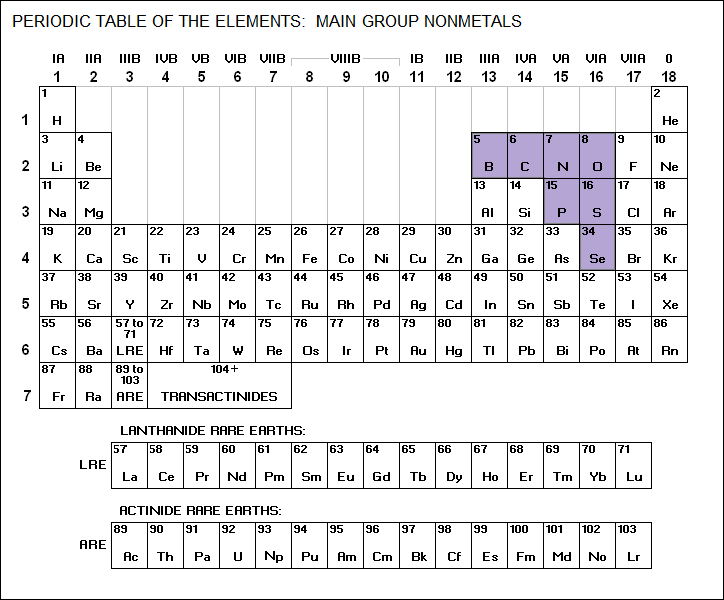
* Boron is a member of the main group nonmetals family:

____________________________________________________________________
BORON / B / 5
A nonmetallic element with several forms, the most common being
amorphous boron, a dark unreactive powder. There is also a
rarer crystalline form that is almost as hard as diamond. Two
isotopes are found in nature:
B<11/5> / 80%
B<10/5> / 20%
Both are stable.
atomic weight: 10.811
abundance: 38th
density: 2.3 gm/cc
melting point: 2,079 C
boiling point: 2,550 C
valence: 3
____________________________________________________________________
Boron is only found in nature as "borates", which are oxides of boron. Millions of tonnes of boron are produced each year. It is heavily used industrially, for example to improve the conductivity of aluminum, make nickel easier to process, and allow iron to flow more easily. Boron-metal compounds, or "borides", have very high melting points and are used in rocket nozzles and the like.
Sodium borate or "borax" is commonly used as a cleaning compound, while boric acid, or B(OH3), is used as an antiseptic. Boron is used in ceramic glazes and glasses; heat-resistant Pyrex glass consists of 12% to 15% boric oxide (B2O3), and glass fiber also a borosilicate glass. Boron is also a good neutron absorber, and has been used in radiation shielding.
